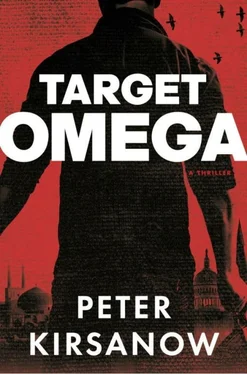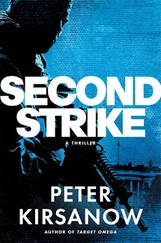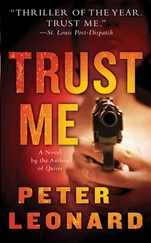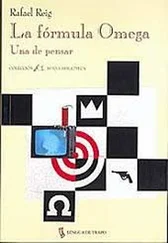Fortunately, a search of his apartment would yield nothing related to Michael Garin. The apartment was leased to Thomas Lofton, and any identifying information found inside — credit cards, bills, passport, were in that name. All of his neighbors knew him as Lofton, and any check on the description of his Jeep or its license number would return Lofton as the owner.
In hindsight, Garin knew it had been a mistake to leave the Makarov in the apartment while he checked on Tanski, but even so, any fingerprints the FBI lifted off the weapon, or anything else in his apartment, would belong to Thomas Lofton. That would be fine if the matter were confined only to the local police and the FBI. But when his prints were checked against the BCI database, alarms would be triggered in certain quarters. There was a select group of individuals who would immediately know that the FBI’s suspect was Michael Garin, and it was unclear how those individuals would react; they were, after all, the only ones who knew the identities of the Omega team and where they could be found. As Clint Laws would say, there were no coincidences in this business.
The thought of Laws prompted Garin to punch the old man’s number into his cell phone again. Still no answer. Laws not answering once was happenstance. Failing to answer twice was unusual. Three times signaled an emergency. Garin’s mind reflected back to a man in gray slacks and a blue blazer nursing a tonic water in the lounge of the Diamondback.
At the moment it appeared everyone who had a close association or recent contact with Garin was now dead or unreachable. Which made Garin’s stomach plummet when he realized he hadn’t thought to call his sister, Katrina.
Garin knew he should go dark. Whoever was methodically finding and executing some of the finest operators in the world had impressive capabilities. Garin’s phone was supposedly secure, but he had to assume that whoever was responsible for today’s carnage had the ability to intercept and track his communications. US intelligence agencies could easily do so, and it was certainly possible that someone within the community was involved. Regardless, he had to take the risk of contacting his sister. Then he would make sure to disappear.
Keeping an eye on the scene outside his apartment, Garin punched Katy’s number on his cell and waited. After four rings it went to voice mail. He disconnected and redialed. Same thing. And just like that, his anxiety spiked. He had to go to Ohio to check on Katy and her family. He couldn’t fly; security cameras and credit cards would reveal his whereabouts, so that left driving.
Garin put the Jeep in gear and, as Emilio watched, put a finger to his lips again in reminder. Coconspirators executing a classified mission. Emilio kept his hands at his sides and gave a slight, surreptitious nod of acknowledgment.
Garin turned the Jeep around. There was little doubt that whoever had tried to kill him this afternoon would try again. But he was going to make sure his sister and her family were safe. And then he was going to kill every single person responsible for today’s slaughter.
WASHINGTON, D.C.
JULY 13 6:00 P.M. EDT
The Red Top cab dropped Olivia in front of Brandt’s modest yet stately redbrick colonial near the Columbia Country Club in Chevy Chase, Maryland. Many high-level political appointees, upon first arriving in the capital, take months to find a suitable residence in the D.C. area, some remaining in hotels or sharing apartments with friends until they do. Not James Brandt. With his typical Teutonic efficiency, he had located this gem in less than a week after his appointment as NSA.
Olivia proceeded up the winding walkway, lined with a rainbow of tulips, to the front door. A small security camera connected to a facial recognition system locked on her as she pressed the intercom button on the right side of the doorframe.
After a few moments the door buzzed open and Olivia stepped inside. She was greeted affably by Arlo, Brandt’s mammoth black-and-tan German shepherd. The dog raised his muzzle to be petted by Olivia. The two were fast friends, having spent long hours together while Olivia worked on her dissertation with Brandt back at Stanford.
Brandt’s voice floated from somewhere down the hall, informing her that he was in the library. Arlo led Olivia down the Persian rug — covered passageway past a sunroom and into a large study lined from floor to ceiling with hundreds of books, a few of which had been authored by Brandt. He was seated next to a small fireplace in a plush, high-backed leather chair in a pensive pose well familiar to Olivia. His brow was furrowed and his chin tilted slightly upward, resembling an artist’s rendering of an ancient philosopher contemplating a profound dilemma.
The Oracle. The title was first applied to Brandt when he was a young White House aide more than two decades earlier, shortly after he had written a white paper predicting the fall of the Berlin Wall and the collapse of the Soviet Union. This, at a time when the State Department, CIA analysts, and prominent political science professors were all claiming both that the Soviet economy was strong and that the Kremlin’s hold over the Eastern Bloc was unbreakable. Not much later, the whiz kid wrote a widely derided op-ed for The Wall Street Journal warning that militant, radical Islam had supplanted communism as the greatest threat to the West. In particular, he noted the destabilizing influence in the Middle East of a little-known despot by the name of Saddam Hussein, and his probable interest in Kuwaiti as well as Saudi oil fields. At the time, Hussein, regarded as a potential if distasteful ally, was at war with Iran. A short time later, Iraq invaded Kuwait.
And on it went. Brandt’s prescience drew the envy of rivals and the admiration of nearly everyone else. It was believed that he was first given the title of Oracle not by an admirer but derisively by a jealous colleague in Brandt’s own department at Stanford. Now in his mid-fifties, Brandt radiated confidence. Some of that had to do with his appearance: Tall, with an aristocratic face, thick eyebrows, and a rather large head topped by perfectly trimmed white hair, he had deep-set arctic-blue eyes that conveyed the unflappable bearing of someone who’s used to almost always being the smartest person in the room.
“Olivia, it is my fervent hope that I’ve angered some young man by summoning you here on a weekend.” Brandt held his pose, a look of mischief passing across his face. Olivia smiled, an act that had an electric effect on nearly every man she encountered. She sat opposite Brandt in an identical chair. An antique coffee table separated the two.
“You’re the only man in my life, Professor.”
“And that, darling Olivia, is precisely what I’m afraid of. I may take up more of your time than I should, but that’s no excuse. You really need to get out. Have fun, and I don’t mean writing an analysis of the Chinese navy’s blue-water fleet or some such thing. There are a lot of fine men here in Washington, smart, successful. You can’t just focus on work as if you’re back at school. You need to live your life.”
Brandt’s tone was playful, but there was an element of fatherly admonition to it. Olivia’s own father had died when she was seven. He had been one of the first black players to integrate Bear Bryant’s football team at the University of Alabama. He had met Olivia’s mother, a native of New Delhi, while on a church mission in India. They returned to the United States and, after attaining their respective degrees, got married and taught high school mathematics in Chicago. When Olivia, their only child, was born, they moved to Minneapolis, where Olivia grew up — raised by her mother in a sheltered environment after her father died in a car accident.
Читать дальше












